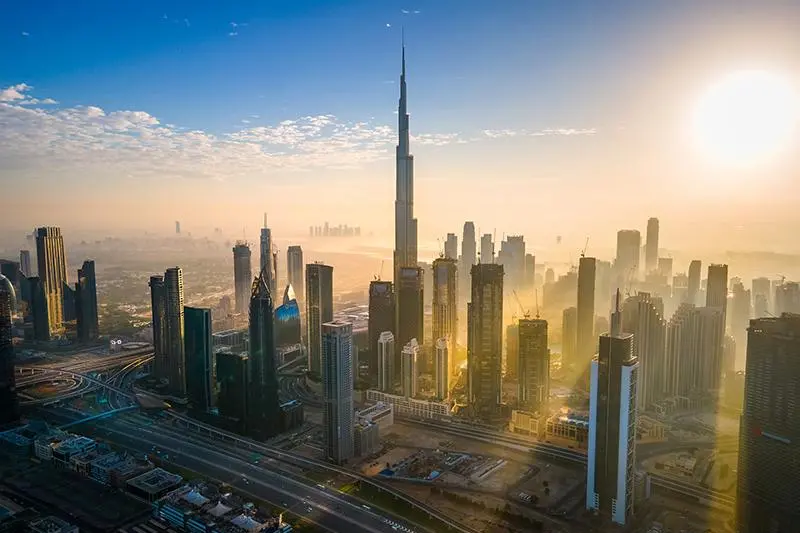PHOTO
The Dubai Islamic Economy Development Centre (DIEDC) lately held its first virtual board meeting for 2021, presided by Sultan bin Saeed Al Mansouri, Chairman of DIEDC. Convening DIEDC’s board members to review the progress of strategic initiatives made by the Centre last year, the meeting also detailed the action plan for 2021, with a specific focus on the DIEDC 2022-30 Strategy.
Sultan Al Mansouri confirmed that the Islamic economy has witnessed four years of outstanding achievements that can largely be attributed to the robust DIEDC 2017-21 Strategy. Implemented in collaboration with the Centre’s strategic partners, a key outcome of the Strategy was the year-on-year growth of the Islamic economy and an increase in its contribution to Dubai’s GDP.
“Following several years of positioning the UAE as a global capital of Islamic economy, today we are happy to lead the nation into the next phase of growth for the sector. Impactful collaborations with nations across the globe and defining public-private partnerships, as well as prioritising the exchange of knowledge and shared success stories have facilitated our journey so far. We are now set to continue our march to shape a sustainable economy following the downturn that was a direct outcome of the extraordinary circumstances of the Covid-19 pandemic,” Al Mansouri said.
Dubai’s pioneering status
Al Mansouri said Dubai’s status as the global capital of Islamic economy can be attributed to the vision and continuous support of His Highness Sheikh Mohammed bin Rashid Al Maktoum, Vice- President and Prime Minister of the UAE and Ruler of Dubai. Since he first launched the Strategy in 2013 as a pillar of a strong Islamic economy based on sustainable development, the sector has witnessed continuous growth.
"Through combining ethics, innovation and true growth, the Islamic economy ecosystem serves not only as an instrument to resolve economic crises, but also to safeguard against any potential ones,” he said.
Furthermore, Al Mansouri confirmed that the Dubai: Capital of Islamic Economy initiative, as part of the national economic diversification agenda, is making significant strides given the strong synergies that DIEDC boasts with its diverse strategic partners from across the public and private sectors. He noted that as a key contributor to the non-oil sector of the national economy that boosts Dubai’s GDP growth year on year, the success of the Islamic economy testifies to the remarkable vision of the wise leadership.
Al Mansouri said the next phase requires us to intensify collaborations with DIEDC’s strategic partners to continue building on the successful track record Islamic economy has achieved to date, and will aim to elevate the Islamic economic system to greater heights.
Achieving strategic objectives
Essa Kazim, secretary-general of DIEDC, confirmed that the executive plans will continue to prioritise the strategic objectives of the Dubai: Capital of Islamic Economy initiative, to boost the industry’s contribution to Dubai’s GDP, and also bring on board more international partners keen to benefit from the growing investment opportunities the Islamic economy presents.
“The Dubai: Capital of Islamic Economy initiative continues to make significant advances in realising its strategic objectives, through multiple programmes that are well aligned with Dubai’s executive plans for 2021. Today, Dubai and the wider UAE are building growing credibility in the Islamic economy space through attracting Islamic economy experts and subject matter specialists as well as startups and young entrepreneurs. This bodes well especially in the run up to the fifth edition of the Global Islamic Economy Summit, scheduled to take place on the sidelines of Expo 2020 Dubai," Kazim said.
“The Islamic economy has the potential to serve as a safety net in the face of crises, given its ethical values and transparent operating principles with regard to wealth accumulation and distribution, while supporting the mission of sustainable development,” he said.
Achieving comprehensive development
During the meeting, Abdulla Mohammed Al Awar, CEO of DIEDC, presented the various initiatives and outcomes achieved in line with the Dubai: Capital of Islamic Economy Strategy in 2020 and announced DIEDC’s action plan for the upcoming year that covers proposed new initiatives and expected milestones on existing ones.
Abdulla Al Awar shared the latest preparations for the fifth Global Islamic Economy Summit that will take place on 1 and 2 November 2021. Addressing the board, he said: “This landmark event is taking place during exceptional circumstances and will convene minds from across the globe to discuss the future of the Islamic economy, as well as its pivotal role in restructuring international economy and trade.”
Al Awar also outlined initiatives the Centre is currently working on with its strategic partners that are expected to further bolster Dubai’s status as the global capital of Islamic economy. He shared the latest updates on the Global Islamic Finance Code, under development in partnership with the Ministry of Finance and other international strategic partners, that will considerably broaden the reach of Islamic finance worldwide through standardisation.
Copyright © 2021 Khaleej Times. All Rights Reserved. Provided by SyndiGate Media Inc. (Syndigate.info).





















